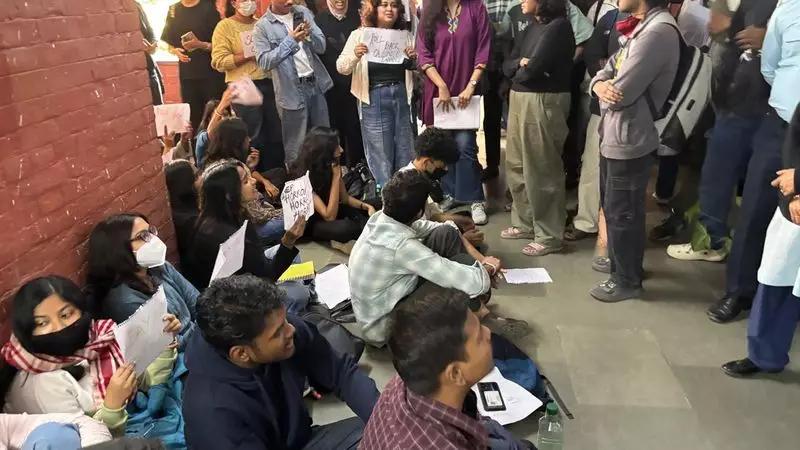
Students from Delhi University's English Department have launched significant protests against the implementation of a continuous assessment system, demanding an immediate return to the traditional annual examination format. The demonstrations, which gained momentum throughout the academic community, highlight growing concerns about the new evaluation methodology.
What Sparked the Student Uprising
The controversy centers around the Department of English's decision to replace the conventional annual examination system with continuous assessment throughout the semester. According to protesting students, this shift occurred without adequate consultation or consideration of student perspectives. The new system requires frequent evaluations, assignments, and regular assessments that students argue creates constant academic pressure.
Protesters gathered in substantial numbers, carrying placards and chanting slogans that clearly expressed their opposition to the continuous assessment framework. The absence of proper discussion with student representatives before implementing this significant academic change has become a central point of contention. Students feel their voices were systematically excluded from a decision that directly impacts their educational experience and evaluation process.
Student Union Backs Protesters' Demands
The Students' Federation of India (SFI) has thrown its full support behind the protesting English Department students. In an official statement, the student union organization condemned the administration's decision to implement the continuous assessment system without student consultation. The SFI has demanded the immediate withdrawal of the new evaluation method and a restoration of the previous examination system that students were accustomed to.
Beyond the procedural concerns, students have raised substantive questions about the continuous assessment system's effectiveness and fairness. Many argue that the constant evaluation cycle creates unsustainable academic pressure and may not accurately reflect a student's comprehensive understanding of the subject matter. The traditional annual examination system, they contend, allowed for more focused preparation and deeper engagement with course material.
Broader Implications for Delhi University
This protest at the English Department represents a significant challenge to Delhi University's academic administration and could potentially influence evaluation policies across other departments. The outcome of this confrontation may set a precedent for how student feedback is incorporated into academic decision-making processes throughout the university.
The situation remains developing as university authorities have yet to issue an official response to the students' demands. However, the persistence and organization of the protesting students suggests the issue will require substantive engagement from university leadership. The protest highlights ongoing tensions between administrative initiatives for academic reform and student preferences for established evaluation methods.
As the academic community watches closely, the resolution of this conflict could shape assessment policies not only in the English Department but potentially across Delhi University's diverse academic programs. The students have made their position unequivocally clear through their organized demonstrations and vocal opposition to the continuous assessment system implementation.





